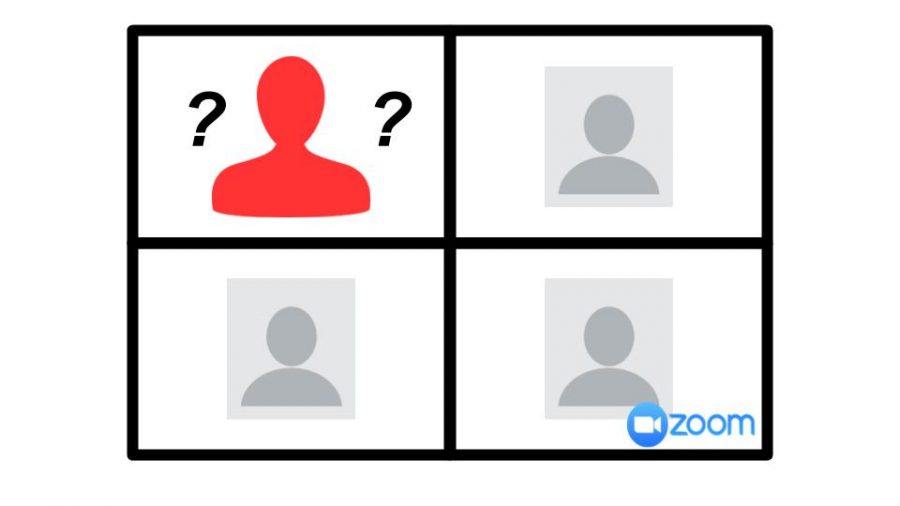DGS students, administration respond to “Zoom bombing” incidents
Zoom bombers pose a threat to the privacy and security of remote learning.
Since the beginning of the semester on Aug. 17, instances have occurred where unauthorized individuals entered scheduled Zoom calls and engaged in inappropriate behavior. The offense, coined “Zoom bombing” by students and staff, has raised questions related to security and ethical concerns in the remote learning environment.
Director of Technology and Information Services Rod Russeau explains how a Zoom bomber gains access to an online class meeting.
“An offender typically obtains Zoom meeting access codes that were inappropriately shared by another attendee. They alter their Zoom profile so that the meeting host will think they are a legitimate attendee, and they are then admitted to the meeting under those false pretenses,” Russeau said.
As a meeting host for his third period Integrated Studies English I class, English teacher Dan Maas unknowingly let an offender into his call during instruction. Maas recounts the experience, citing the offense and his “immediate” action thereafter.
“Two student names popped up in my waiting room and I hit ‘admit all’… One of those students was legitimately on my roster, had gotten dropped out of Zoom, and was trying to get back in. The other was a [Zoom] bomber. Within a few seconds, they unmuted and said one profane sentence, and I immediately removed them,” Maas said.
As teachers and students adapt to communicating online, many are put in a vulnerable position working with unfamiliar technological mediums. Maas believes offenders are taking advantage of the online environment created during remote learning to anonymously incite disruptive activity.
“A remote platform is brand new to most and along with that comes a large learning curve on how to effectively use the technology. We need to have the best remote platforms available, we need the ability to limit access to only those who belong in a specific class… I think there are people looking to get a reaction. They are looking for shock value, the thrill of anonymity, a way to disrupt school and get away with it,” Maas said.
Senior Nina Pinto recalls a similar Zoom bombing incident that occurred during her fourth period ceramics class on Aug. 18.
“A person with a random name, which seemed like a regular kid, joined our class. His screen was black but then he just started screaming things into the camera. It was extremely disruptive and nobody found it funny, just very annoying and childish,” Pinto said.
While Pinto noted the disturbance did not have a major impact on her learning in this situation, she feels it could pose greater distractions when students are engaged in important assignments.
“I think the D99 administration should definitely do all they can to prevent things like that happening again. I would be extremely upset if this happened during a test or discussion. However, I think the teachers are doing a really good job at trying to protect the video calls as much as possible, as my teacher acted quickly and kicked [the offender] off the call,” Pinto said.
On Aug. 24, Associate Principal for Curriculum and Instruction Georgia Hash released instructions to students via email on how to accept an invitation to create a licensed Zoom account through District 99. According to Hash, this was done “in order to better secure the Zoom meeting platform.”
Russeau provides additional context to Hash’s email.
“[Licensed Zoom accounts] enable us to restrict meeting access to only District 99 staff and students, even if meeting credentials were inappropriately shared with an outsider,” Russeau said.
Russeau indicates that the rules of safety and responsibility stressed in person are applicable to the remote learning setting. The same consequences for engaging in inappropriate behavior apply from home as well.
“Student safety, security and privacy are just as critical in a remote classroom as they are within a physical classroom environment… Any abuse of technology is a serious offense as outlined in the student handbook and acceptable use policy. All consequences outlined in the handbook, including law enforcement involvement, are possible based on the nature of the offense,” Russeau said.



